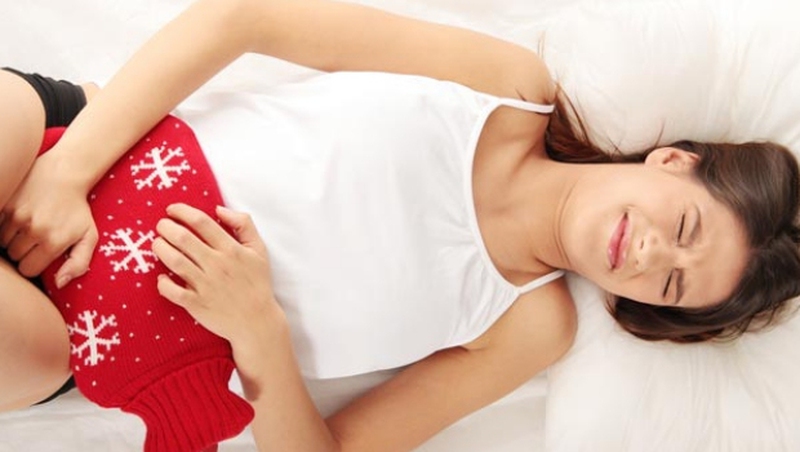Vaginal pain can occur at all ages, and in most cases, no specific cause can be ascertained, which makes it very difficult to manage. According to National Institutes of Health (NIH), almost all women have ever experienced sharp vaginal pain that makes them feel "out of control" and makes it difficult to engage in normal sexual relations. If you have experienced this kind of vaginal pain, read on to know more about it.

What Causes Sharp Vaginal Pain?
Common Causes
Allergy. These allergies can be a reaction to soap detergents, rubber products, medicines such as birth control pills, or hygiene products that are meant for internal use.
Infections like sexually transmitted infections and yeast infection.
Rashes in the vulvar region.
Surgery and sexual abuse.
Irritation of the vulvar nerves.
Abnormal vaginal contractions can also lead to pain and discomfort in some women. The condition is also referred to as Vaginismus.
Gynecological Causes
Endometriosis, refers to abnormal growth of uterine tissue outside of the uterus.
Benign tumors and cysts filled with pus
Severe trauma
Fungal infections like lichens planus
Gynecological disorders such as prolapse of internal organs or severe inflammation
Serious or Life-Threatening Causes
Vaginal cancer
Epithelial neoplasia
Severe inflammatory conditions
Cervical cancers
Direct trauma to pelvic organs
How to Relieve Sharp Vaginal Pain at Home
If you feel sudden sharp pain at home, you can take some tips as below to relieve the pain:
In case of spasm, a warm water bath with bath salt can help soothe the pain.
In case of mild trauma or injury, use of ice packs is often helpful at resolving pain.
Antihistamines are also helpful in women who suffer from allergies and rashes on regular basis.
Shift to milder products and seek for hypo-allergic brands.
If you are experiencing rashes or irritation around the vaginal skin, avoid use chlorine water because it is responsible for causing skin sensitivity and stop using scented products which often sensitizes the mucosal lining because of the high alcohol contents.
For women who feel vaginal pain after sexual intercourse, it is advisable to thoroughly wash their vagina with cold water or use a cold pack if the swelling is evident.
Women who experiences frequent vaginal pain can benefit from wearing loose-fitting clothes and cotton underwear.
Keep an eye on your diet. Certain types of food, such as tomatoes, beans, nuts and cocoa products, tend to produce a more acidic urine that irritates the mucosal lining of the vagina.
Keeping the vagina dry and clean at all times is also essential to minimize the risk of microbial or fungal growth.
How Is Sharp Vaginal Pain Treated Medically?
Medications
Using antihistamines can help alleviate pain and itching if you also experience it in the vaginal region. Muscle relaxants may be prescribed in case of spasm. For long-term therapy, anticonvulsants and tricyclic antidepressants are also helpful.
Intravenous Therapy
When medications seem ineffective, intravenous therapy can be used for pain relief. These injections contain drugs that act as numbing agents for the pudendal nerve which is responsible for transmitting pain signals from the external genital region. Numbing this nerve decreases the pain sensation in the vaginal region and in some serious cases, the nerve can be cut of completely.
Relaxation Therapy
For women who suffer from sharp pain in the vagina along with muscle spasms due to psychological reasons, a specific type of physiotherapy called "biofeedback therapy" has been proved useful. In this therapy, the contraction and relaxation of the muscles can be measured via an insertion device.
Pelvic Floor Therapy
Another therapy for strengthening pelvic muscles is "pelvic floor therapy" which allows the affected person to work on the muscles around the vaginal region to minimize the intensity, severity and frequency of pain and spasm episodes.
Mild Anesthesia
In case of shooting vaginal pain, mild anesthetics such as lidocaine can help relieve the pain and discomfort. These ointments may, however, have a numbing effect on your partner as well. In addition, they must be used 30 minutes before intercourse. To get the maximum effect, apply ointment soaked cotton rounds in the opening of the vagina.
Surgery
In more severe cases, tissues affected by cancer, necrosis or overgrowth need to be removed by surgery for permanent relief.
If you are pregnant and feel vaginal pain, maybe the video below can be helpful.

View All Comments /Add Comment